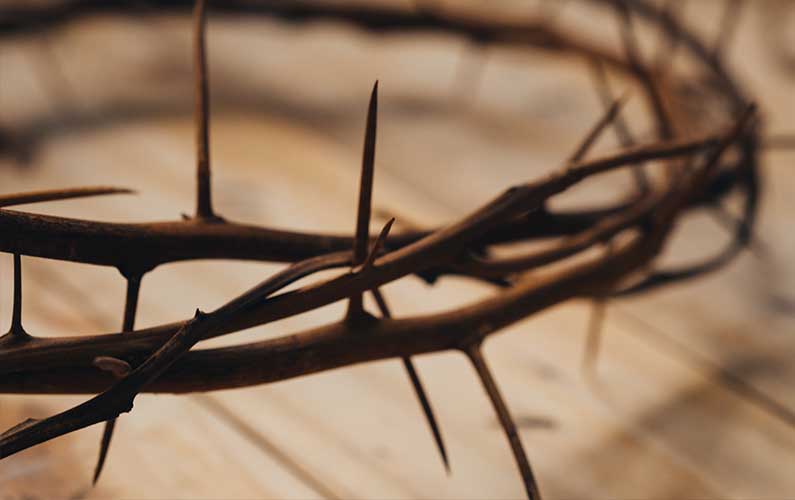What difference does the King who deserves to rule, desires mercy and cares deeply for the vulnerable make to those who have experienced abortion – and to every one of us?
This article provides a taste of the Gospel and Abortion podcast interview. Listen for more on speaking and acting on abortion including ideas for showing care to vulnerable families and children in our churches, and engaging politically.
A PCQ minister commented recently just how heavily a sermon on abortion weighed on his congregation. More people than usual wanted to talk seriously afterwards. There was palpable discomfort in the room, a sense that the issue exposes something frightening about the human heart.
This short article will explore how abortion does indeed expose something frightening about the human heart – including our own. It shows us where self-rule leads. It shows us how much we need God to rule our hearts and how much we need mercy. But the frightening reality of the human heart also helps us look beyond ourselves to the glorious heart of the King who deserves to rule, desires mercy and cares deeply for the vulnerable.
Abortion – Some Facts
Let’s start with some facts about abortion. First of all, it is very common. Approximately one in three women in Australia will have an abortion at some point in their lives. Although it is currently illegal in Queensland, thousands of pregnancies are still terminated here every year on the basis of legal exceptions regarding the mother’s physical, mental and social need. So, it not surprising to find that there are many Christian women, men, families, friends and health workers who have experienced abortion up close.
Most people find abortion procedures too disturbing to watch or even hear described. The experience of abortion is often one of horror, regret and grief for both believers and unbelievers. Many find it to be an ongoing burden carried silently and alone for years afterwards. We can easily be oblivious to how much sadness lies behind the faces of those around us, including our Christian brothers and sisters.
And yet despite this painful reality, we find many in our community publicly championing easy access to abortion as a positive social good, especially for women. At the time of writing, QLD Premier Annastacia Palaszczuk has announced that a bill to decriminalise abortion will be tabled in August, as foreshadowed following QLD Law Reform Commission recommendations. The bill would allow termination of pregnancy up to 22 weeks’ gestation on demand. Abortions after that time would be legal with the approval of two doctors. A campaign to remove the negative stigma of abortion, #ShoutYourAbortion, has taken twitter by storm.
There is something, at the very least, astonishingly confused about human hearts that hold this devastating and destructive practice aloft as good, normal and essential for guaranteeing the freedom of women. What mental gymnastics allow abortion to be considered an acceptable course of action? A woman in the frightening situation of an unplanned or complicated pregnancy in our community will likely hear messages that don’t seem that shocking. In fact, they sound caring and reasonable. Messages like: ‘choose what is best for your welfare’; ‘when life goes wrong, take whatever way out you can; ‘no one should stop you doing what’s right for you’; ‘there is no greater purpose or meaning in this hard situation, no good or comfort to be found in continuing this pregnancy, no point in sacrificing any part of your life’; ‘an abortion may be a sad thing to do but it will take this problem away and get your life back on track’; ‘it may even be the kindest thing for the baby’; ‘abortion is OK because your unborn baby is not yet a person like you and me’. Moreover, many women feel considerable social pressure to have an abortion when they soon find that their partner, family, employer and doctor will not support any other ‘choice’. Ultimately, in a society that encourages worship of the sovereign self at all costs, we hear the message that abortion is a reasonable path to take. When protecting the sovereign self is non-negotiable, it makes sense to remove another who threatens that self-rule. It makes sense to say that the lives of the youngest, most vulnerable people in the womb are less valuable than the needs and desires of the adults around them. And so, a child’s life is lost, and a woman is left carrying the burden of that decision for the rest of her life.
However, it’s not just women and those around them who are involved in abortion. We are all complicit in the values that drive it. We are all guilty of wanting to be worshipped and to rule our own lives; of using others for our own purposes; of devaluing those in the way of our desires, especially when we do not directly know or see them; and justifying ourselves as we go. The essence of self-rule has not changed since Genesis 3:4-5, when Adam and Eve believed the serpent’s message: ‘don’t worry about God, do what’s right for you. Be your own sovereign self’. The Bible and human history shows the sovereign self will always be hostile to God’s kingship and find ways to justify violence. Our hearts are, indeed, frighteningly sick.
The King
Against this backdrop, how striking it is to see heart of Jesus, the true King who deserves to rule. The heart of this King condemns self-rule, desires mercy, changes self-ruling hearts, and cares deeply for the vulnerable. There are three things to notice about Jesus as we think about abortion.
Firstly, nothing can stop God’s infinitely more powerful Kingdom through His Son. As we weep for the children lost to abortion and the devastation to those involved, we also hope in the King whose Kingdom of love and righteousness has already begun and will be fully realised when He comes a second time. The sovereign self and its deathly schemes will not have the last word in this world. The true King will. Abortion does not provide a ‘quick fix’ without consequences. Jesus will judge unrepentant self-rulers who choose to ‘terminate’ the vulnerable.
Secondly, however, this King overwhelmingly desires to show mercy to the guilty. Jesus is the physician for those who are sick. In Matthew 9:13 He says to the self-righteous Pharisees ‘I came not to call the righteous, but sinners.’ As communities that gather together the true King’s people, our churches are hospitals for sinners. Our message to those who have experienced abortion up close is the same as it is for all self-rulers – bring your heavy burden of sin to the King and find forgiveness and rest in His sin-bearing death for you. No child of God should need to hide their past from their Christian brothers and sisters for fear of rejection. We need to do better at ministering God’s Word of abundant grace and forgiveness to those who have been involved in abortion. Furthermore, when our church communities are shaped by the grace we’ve found in Christ, no unmarried man or woman should feel they need to hide an unplanned pregnancy and resort to a ‘quick way out’ for fear of rejection at church.
Thirdly, this King is able to liberate our hearts and wills to choose to care for the vulnerable as He does. We know that He sympathises with our weakness, comforts us and works for our good in every life derailment and unexpected turn. As brothers and sisters in Christ, we can sacrificially care for women with unplanned and complicated pregnancies, and embrace the young life that has already started. Amidst the bleak landscape of abortion, we can display the power and compassion of King Jesus to forgive and care for the vulnerable.

